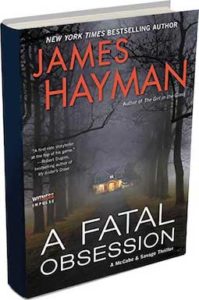The Loneliness of the Long-Distance Writer
One of my favorite films from the 60’s is Tony Richardson’s The Loneliness of the Long Distance Runner starring a very young Tom Courtenay. The film is based on a short story by Alan Sillitoe who also wrote the screenplay. It tells the story of a rebellious young man from England who is arrested for robbing a bakery and is sent to a boys reformatory or a borstal as the Brits call it. While there he discovers that he has a gift for long-distance running and much of the film is about how his lonely reveries while running mile after mile, ultimately shape and change his life.
In my view the film provides an excellent metaphor for the craft of writing.
Writing is a solitary, if not anti-social pursuit. It’s something you must do alone. If the piece you’re writing happens to be a three or four hundred page novel you have to plan on being alone for incredibly long stretches of time. If you crave or need constant or even frequent attention and interaction with other people, the best advice anyone can give you about writing a novel is don’t.
The single line I remember most clearly from Annie Dillard’s excellent memoir The Writing Life, (which I read several years ago) is her response to a reader’s question about what makes the ideal writing space.
Dillard, at the time, lived in a beautiful house overlooking the Pacific Ocean in Washington and this reader no doubt was expecting Dillard to describe a cozy, book-filled study with endless views of endless waves lapping against the magnificent coastline. Instead she said that the ideal writing room, at least for her, was a cinderblock cell devoid of books, telephone, television and even windows through which she could catch a glimpse of the outside world.
Like Dillard, I’m lucky enough to live in a beautiful house overlooking the ocean in Maine. My designated writing room is a small, admittedly book-lined room on the second floor of my house and it boasts one of the prettiest views anyone could ever imagine of Casco Bay and the islands stretching out in the distance. When I write I close the shades and shut it all out. I also turn off the telephone and disconnect myself from the Internet.
Even writers who prefer writing in crowded places, coffee shops for example, or libraries (where I often write) or while riding on trains or planes, essentially have to be alone inside their own minds and imaginations while they craft their pieces. Their only company are the characters who people their stories (whom I sometimes describe as my imaginary friends). The only interesting conversations they get to engage in are the dialogue exchanges they put in their characters’ mouths. The only beautiful views, or views of any sort, they can enjoy are the ones gazed on by the characters in their tales.
All of this makes me, if not other writers, something of a curmudgeon. When my wife gently knocks on my door, usually to ask me a civil and often necessary question, my typical response is a low dangerous growl. Cujo in spectacles.
I am currently on deadline to finish my third novel and so I spend all my working time by myself. I’ll be happy when the book is finally finished. So, I daresay, will my wife and any friends I still have left, those who I haven’t totally driven away.

